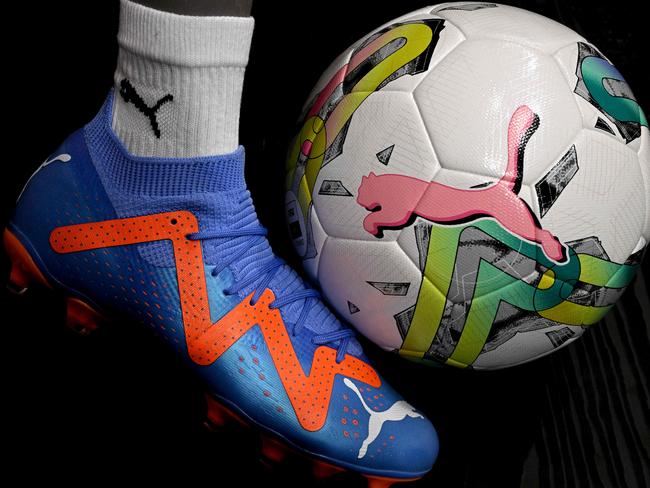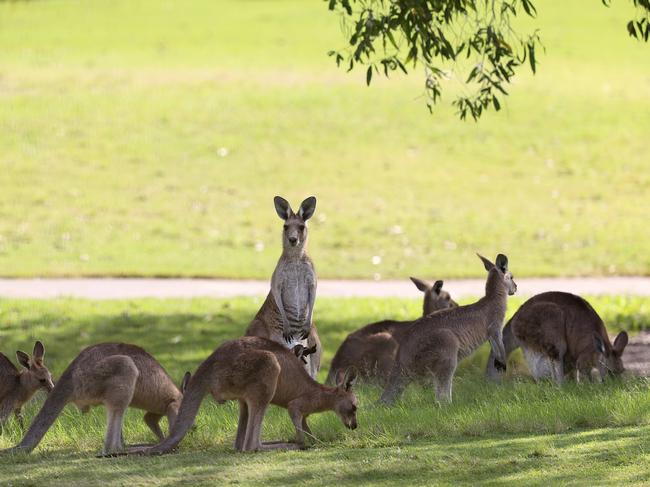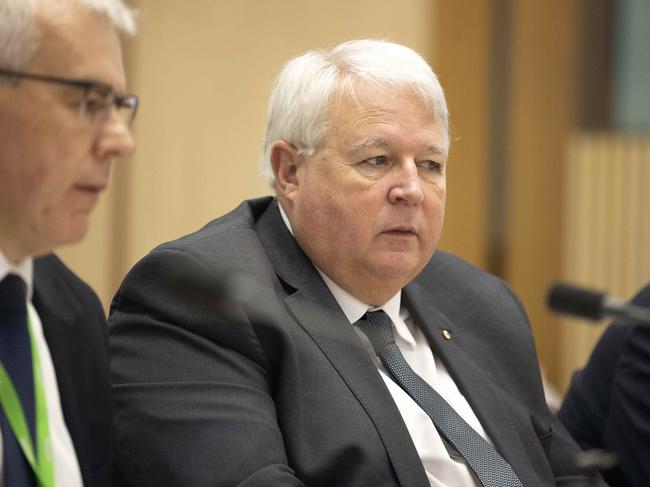Australia fights US moves to ban kangaroo product imports
Australia is trying to shut down a misinformation campaign by US animal activists who are fuelling a growing push to block the importation of kangaroo products.
Companies
Don't miss out on the headlines from Companies. Followed categories will be added to My News.
Exclusive: Australia has launched a diplomatic offensive to shut down a misinformation campaign by American animal activists that is fuelling a growing push to ban the importation of kangaroo products.
At least four US states are plotting legislative crackdowns, mirroring a similar effort with cross-party support at a federal level, while Puma last week scrapped kangaroo leather for its signature soccer boots.
Politicians in Nike’s home of Oregon are trying to force the world’s biggest shoe company to follow suit, with Democrat Floyd Prozanski saying: “It’s unconscionable that millions of native wild animals in Australia have been killed for the sake of high-end soccer cleats.”
But the Australian government says it is “working to dispel the myth, which persists in both Australia and overseas, that commercial kangaroo harvesting is a threat to the species”.

News Corp can reveal Department of Agriculture, Fisheries and Forestry boss Andrew Metcalfe held crisis talks with US government officials in January to reinforce the “sustainability, quality and welfare standards” in the industry.
Australia’s consul-generals have also been dispatched to lobby legislators in Oregon, New Jersey, Arizona and Connecticut.
“The government is tackling misconceptions that harvesting of kangaroos in Australia is inhumane, noting the importance of sustainable, humane management of kangaroos to prevent ecosystem damage and crop loss,” a department spokeswoman said.
Legislation for an import ban was introduced in the US House of Representatives in 2021, and while it has not progressed, co-sponsor Brain Fitzpatrick said in December he was waiting for a week in Congress focused on animal welfare and it would “pass overwhelmingly”.

The Center for a Humane Economy has been running a campaign to extend California’s importation ban introduced in 1970, claiming two million kangaroos a year are “gunned down in their native habitat to feed the kangaroo parts industry”.
Kangaroo Industry Association Australia (KIAA) executive officer Dennis King blasted their “emotive misinformation”, declaring: “No animal is slain just for the skin to make soccer cleats”.
“In the absence of a commercial industry, conservation culling would still need to occur to manage the populations of certain species,” he said.

The department agreed, saying only seven out of 60 species of kangaroo and wallaby were approved for commercial harvest and were not listed as threatened or rare, and that harvesting was necessary to prevent overgrazing as well as dehydration and starvation.
“Under government oversight, commercial operators make use of a natural resource that would otherwise go to waste during culling,” the spokeswoman said.
“We will continue to advocate for the commercial kangaroo industry in markets around the world.”
KIAA president Ray Borda said despite Puma’s decision, other shoe manufacturers were increasing their use of kangaroo leather as it was “fast becoming known as an eco-friendly option due to its longevity, biodegradability and sustainability”.





